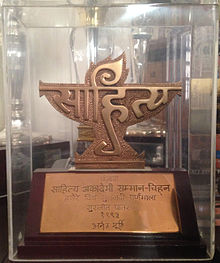EyeStar Seagull gloomily stared at the television as she flipped channels.
“What is this country coming to,” she said to her naukarani Rasika, the only one around who listened to her any more, “I see rallies of this Modi guy in Bihar and he is saying development, development and all these excited youngsters are climbing over each other to see him. They want to wear suit-boot!Is this what we worked for all these years?”
“Indira Gandhi had said garibi hatao. Garibi…that was what was important. For decades and decades the garib voted us in. And this Modi, this terrible man, he wants to not have any poor people. What a fascist idea, this development is. They will all get gadgets, get on Twitter, and become Internet Hindus. Who would vote for us? And where will our servants come from?”
She glanced quickly at her nuakarani, who stood there nodding her head, happy to get a little break from her work when the memsahib wanted her to listen to her blabber.
“You don’t understand a word of what I am saying, do you?” she continued in English, as Rasika hid a smirk, not willing to disabuse the memsahib of her opinions. “And the gall of this man, this low class fellow, this chaiwallah, why his mother was a servant just like you. Imagine, just imagine him wearing a suit and strutting about like he went to Oxford or something and having tea with the American President. Tea. Does he know anything about tea? Well, let me tell you. I went to Woodstock School, and to Wellesley College. I know.”
That reminded her. “Tukya khadi khadi dekhrahi hai?” she shouted to Rasika. “Isiliye paise milte hain. Get me my tea. Ja chai banakar la.” Yeh log, these people, she muttered under her breath. “They are lazy and ignorant. And what nonsense does this Modi say about ‘aspirational India.’ These villagers are meant to be servants. They don’t even know how to use a knife and fork and they eat with their mouths open. Did they go to Woodstock and Wellesley? Good for nothings.”
“But who listens to me anymore, to culture, to real literature. Years since I had a book out, no one outside some English students doing Ph.D.’s in ‘Indian writing in English’ even know my name.” She flipped the channel again and saw TV anchor Rain Dirt pontificating on mob violence in UP and its link to Hindutva fascism. “Why the last time I was on TV was when I got that Sahitya Akademi award. I had worked hard for it too,” she said, remembering how she had to nag the Chairman and use the clout of her relationship to the first family. “And now, they don’t even call me on TV. What use is this award?”
She stared hard at her mantelpiece as she absent-mindedly polished the brass plate with the award citation. She didn’t even like what they stupid thing looked like, “these Indians have no art. I should just give this away.”
Suddenly a fresh thought entered her long-stale head and she perked up, a smile creasing her wrinkled cheeks. “Hey Rasika,” she shouted, “Get me my diary. No not that one you stupid girl, my address book.”
She quickly snatched the book from the girl and thumbed through the pages. “Showtime! Time to get back on TV. This old award can still be squeezed for a last hurrah. After all the work I had done for it. Eyestar would show them, she can still be the star in their eyes. I’ll call up Rain Dirt, maybe even Oceanika Ghost. I have a big announcement. I am going to return my award.”
Sankrant Sanu is an entrepreneur, author and researcher based in Seattle and Gurgaon. His essays in the book “Invading the Sacred” contested Western academic writing on Hinduism. He is a graduate of IIT Kanpur and the University of Texas and holds six technology patents. His latest book is “The English Medium Myth.” He blogs at sankrant.org .

